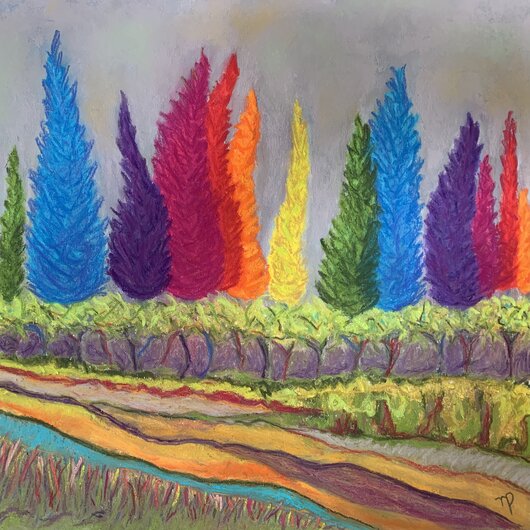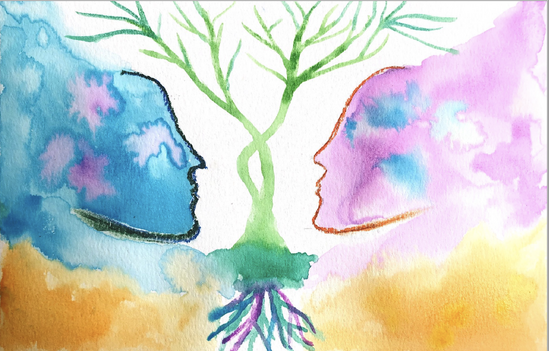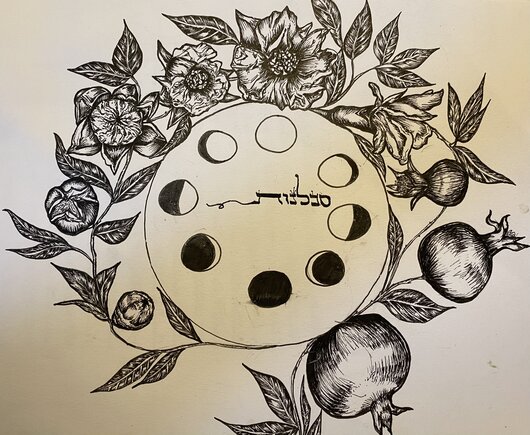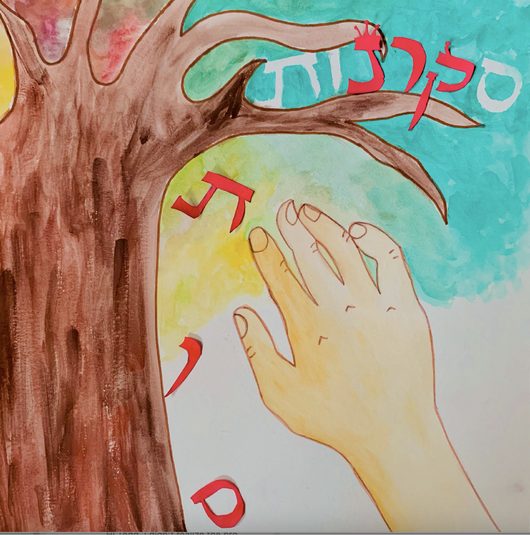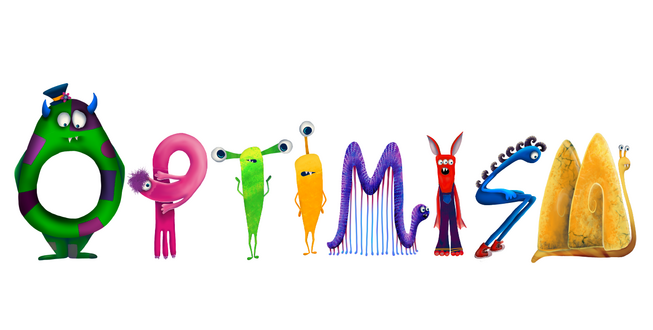OUR MISSION
The Wexner Foundation develops and inspires leaders in the North American Jewish Community and the State of Israel. Through pluralistic, cohort-based educational programs, the Foundation invests in promising professionals and volunteers, giving them tools to exercise transformative leadership.
Working in partnership with other foundations, philanthropists, and organizations, our Foundation contributes to the development of a robust, meaningful, and diverse North American Jewish community and a professional, networked, and collaborative civil service in the State of Israel. The Foundation is committed to Jewish Peoplehood and actively fosters connections between Wexner leaders in North America and Israel, promoting engagement between them as a priority for leadership in both communities.
For 35 years, The Wexner Foundation has never wavered from its focus on leadership in the Jewish world and Israel. The Foundation’s professionalism, standards of excellence, and strong relationships with Jewish communities and organizations have created a model of practice for Jewish private philanthropy that has stood the test of time.
OUR VALUES
We strive to pursue all aspects of our work with integrity, transparency and excellence. The values outlined here are qualities we aspire to express in our own exercising of leadership as well as cultivate in all of our Wexner Alumni, Fellows and Members. While this list is not by any means exhaustive, it represents a set of values that characterize the spirit we bring to both our learning of Torah and our study of leadership.
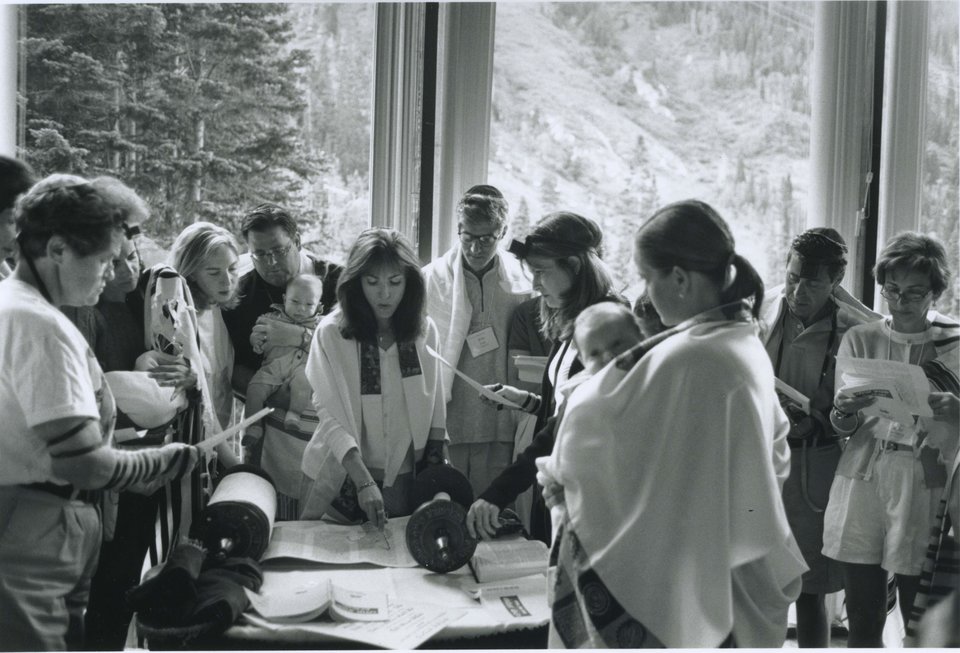
DIVERSITY
GIVUN / MIGVAN
גיוון/מגוון
Kol yisrael arevim ze b’zeh…All Israel, our sages insist, is responsible, one for the other.
We stretch Wexner circles across different expressions of Jewish life in North America and across the spectrum of Israel’s citizens. The Foundation’s methodology of developing leaders relies on building diverse cohorts of talented individuals who develop unique bonds. We count on our cohorts to honor each other’s truth without eroding the importance and vitality of their own. In a circle of Wexner learners, participants strengthen and sharpen one another’s leadership agenda. Abiding by established rules of engagement, Wexner participants are expected to conduct civil discourse across differences. Giving others the benefit of the doubt as to their sincerity and integrity forms the baseline of healthy relationships and enables the building of effective and enduring teams. We are responsible for one another.
EMOTIONAL INTELLIGENCE
BINAT HA’LEV / בינת הלב
We value emotional intelligence, binat ha’lev, a heart of understanding.
The midrash teaches that the heart holds over 60 emotions. It sees, hears, speaks, stands, rejoices, weeps and comforts. Emotional intelligence is measured by an intentional effort to be self-aware, to master reflective practice, to demonstrate the capacity to listen, to manage our own desires, to face our fears and biases, to be open with our vulnerabilities, and to be attentive to the full range of the heart itself. An understanding heart must be intentionally cultivated and requires regular, even daily practice.
PATIENCE
SAVLANUT / סבלנות
Practice patience. Savlanut.
Communal change is not sudden. Silver bullet, quick-fix thinking tends to oversimplify the reality that to move forward we need to be active on dozens and dozens of fronts. Patience paves the way to a discovery of what will advance our communities. Persistence is required to reveal our passions and to connect those passions to purpose. Patience calls on us to go slow to go fast. Savlanut is an essential value during the sometimes-long hours, the drawn-out processes of decisive action.
HUMILITY
ANAVAH / ענווה
“It is not necessary to be afraid of greatness because it inspires us to do great things. But, he cautions, invest much effort in clinging to humility so that the greatness to which we aspire is for a holy purpose.”
– Rav Kook
Building a foundation of humility.
We seek to cultivate humility in Wexner leaders. Humility pushes open wide the gateway to new learning. It facilitates listening and the ability to self-coach. In a humble stance, we embrace our shortcomings and learn of our blind spots. The path to meaningful collaboration, necessary for a vibrant Jewish future, is built on a foundation of humility. Making room for others, knowing when to speak more/speak less, and when to say nothing is paramount to the effective exercising of leadership.
CURIOSITY
SAKRANUT / סקרנות
“…hafoch ba v’hafoch ba, turn it and turn it again for everything is in it.”
-Pirke Avot
When Ben Bag Bag tells us to keep turning the pages of Torah over and over again, he is teaching us ceaseless curiosity. He is telling us to ask more and more questions. Current organizational perimeters make us comfortable and lull us to be overly cautious, rather than wondering what else could be. We habitually argue for “what we always have been” over energized tinkering and playful conversation about “what might we become?” To paraphrase Albert Einstein, “We cannot solve today’s problems with yesterday’s solutions.”
JOY
SIMCHA / שמחה
“A person in a joyful mood can learn more in an hour than a somber person can in many hours.”
– Ruach Chaim
Humor is necessary in pursuing our mightily important work. Simcha, joy, is essential to leading, sometimes even during seasons of despair. Laughter fuels our energy…leadership, though a serious undertaking, should also be fun, playful and joyous. Leading should be uplifting, fulfilling, and not diminishing the light of the neshama, our spirit and soul.
OPTIMISM
OPTIMIUT / אופטימיות
We fill our kosot kiddush, our wine cups, to the very top every Shabbos. It is a siman bracha, a sign that we are pursuing lives of full blessing.
Leaders must hold up high the promise of a brighter future. Belief in a better future makes the possibility of that future all the more probable. The pessimist accepts the world as it is, rather than seeing how the world ought to be. Our optimism is inevitably eroded by nightmarish cycles of ugliness and division, yet we cling to optimism. Each week, when we allow the dust of the prior six days to settle, we, again, fill our kosot kiddush to the brim. The cup is full and over and over we repeat: l’chaim. To life.
FEATURED ARTISTS
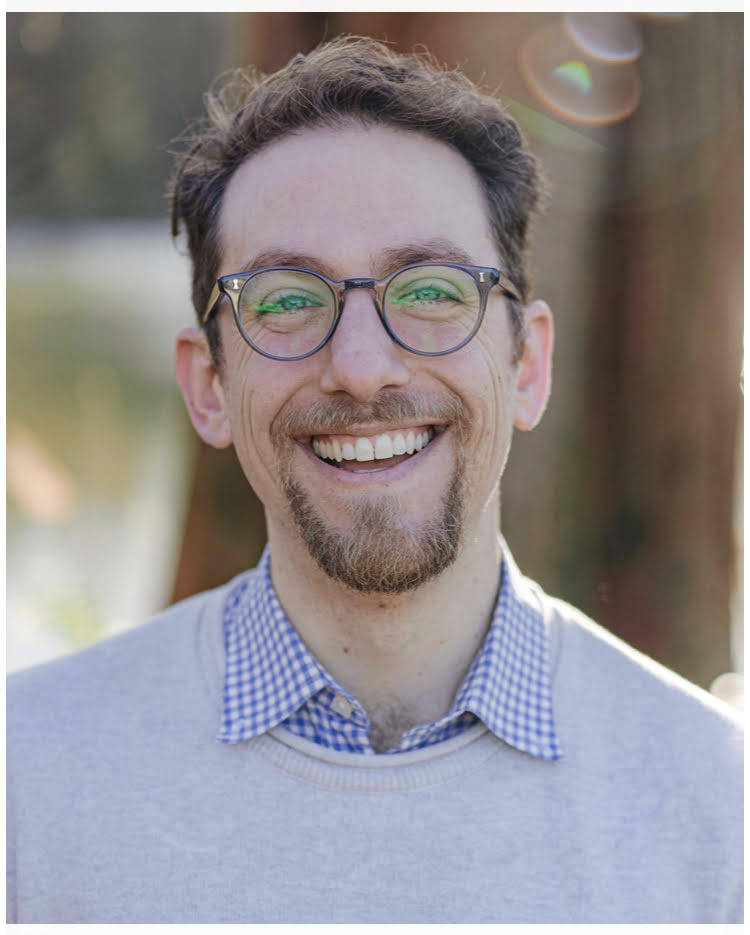
WGF/DS ALUM DAVE YEDID (CLASS 31)
Wexner Value: EMOTIONAL INTELLIGENCE
The heart of understanding is about connection. I paint ethereally, not ascribing gender or features. I chose to mirror the colors in each person, stating that they are distinct but absorb pieces of one another. I imagine them understanding and empathizing with one another, seeing and feeling seen, listening and feeling heard, comforting and being comforted. When vulnerability is brought into the exchange, something beautiful and life-giving can take root in the space between them. As it grows, it nourishes them in turn. Everything in the piece stems from the connection they cultivate, both within themselves and with one another.
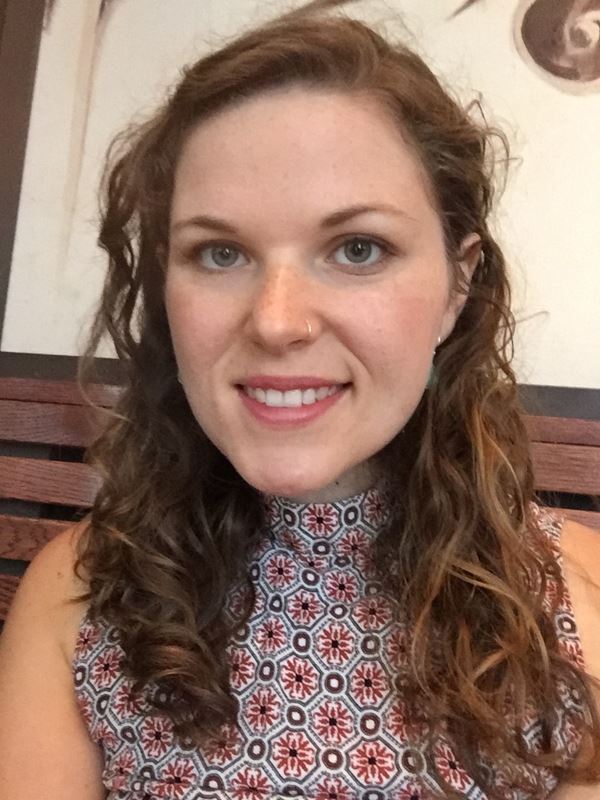
WGF/DS ALUM REBECCA ZIMMERMAN HORNSTEIN (CLASS 30)
Wexner Value: PATIENCE
Savlanut, patience, is about trusting the process even if we don’t understand what that process is or where it will lead. As we live through this moment of upheaval, may the quality of savlanut remind us that nothing is permanent and that change is the only constant. And, like the pomegranate blossom, the fruits of our energy, effort and attention eventually will bloom, often in totally unexpected ways.
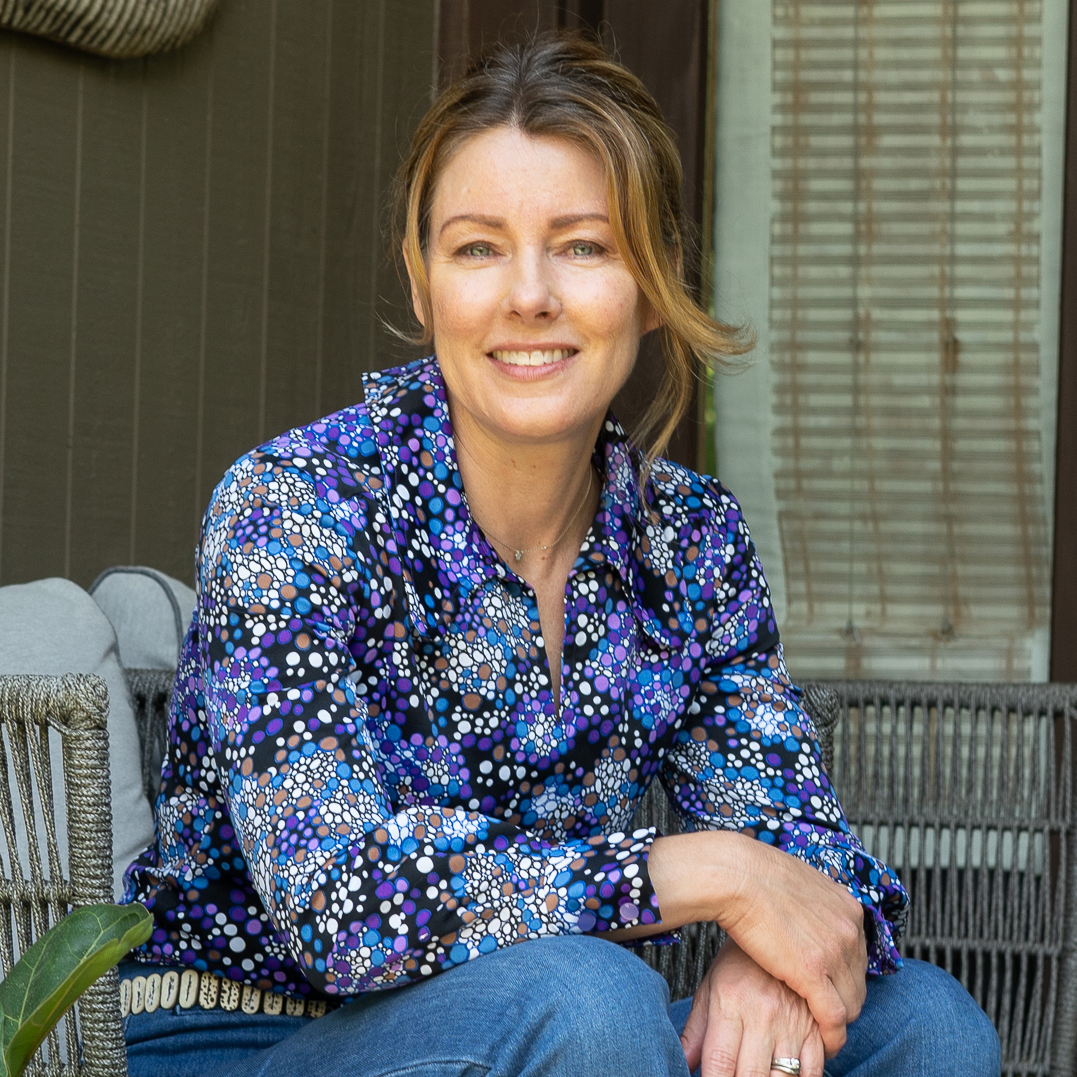
WHP Cindy Loon (Cincinnati 19)
Wexner Value: JOY
As a leader, you amplify. When you lead with joy, you lead with a wholeness, aligned with your purpose and passion, connected to one another, fully engaged and dedicated. As you enable joy from your heart, it fills and flows over your entire team.
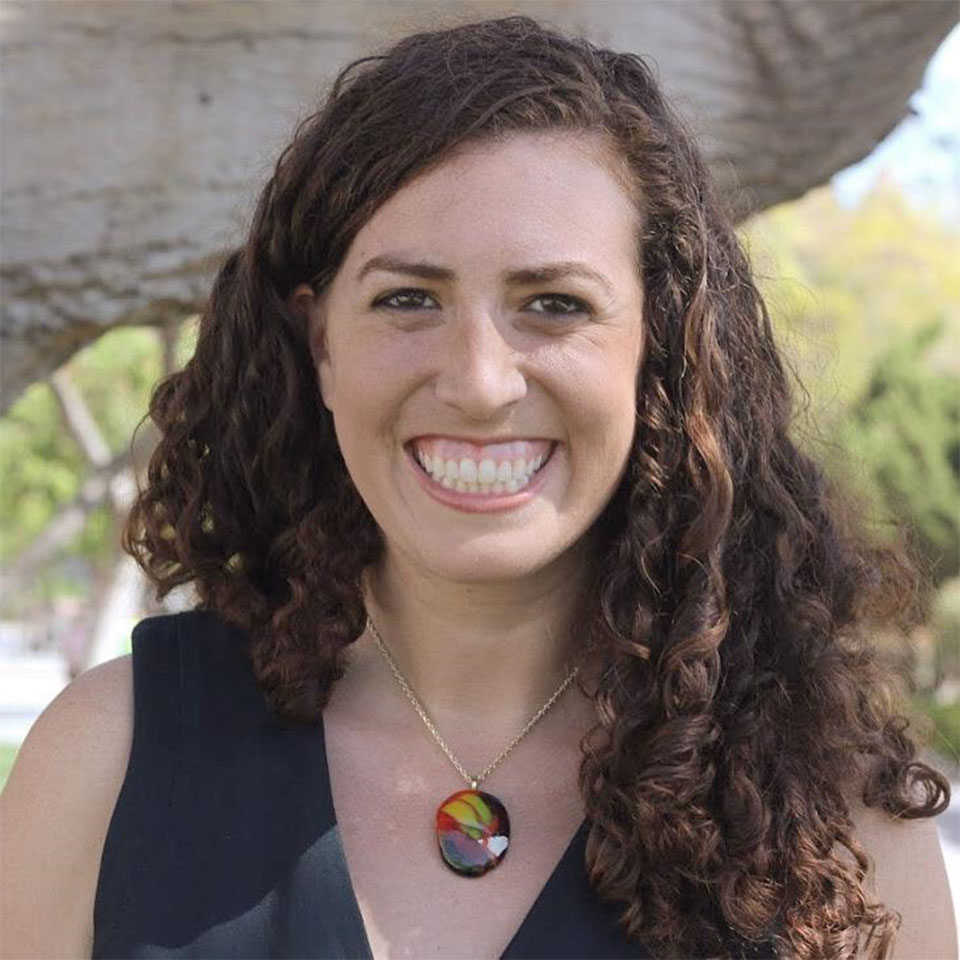
WGF/DS ALUM SASHA KOPP (CLASS 27)
Wexner Value: HUMILITY
One of the big questions about humility is, “How do we find our space?” Our humility guides us both to help us know when to shine, and when to step back to let others have a turn. This dance between stepping up and stepping back ideally creates a more perfect whole where different people, personalities and ideas are able to come to the surface. This piece, The Layers of Space, represents that dance. There is positive space and negative space; many pieces are placed on top of others. The final design only exists due to layers building upon themselves over time. Each piece can be seen and has a purpose within the larger context. Together, the composition creates a sense of movement and wholeness through the variety of shape, color, and layers. Where do you find yourself in this piece? Do you see yourself in the foreground, in the background? What color are you? Why do you think that? How do your answers help you to reflect upon where your humility lies?
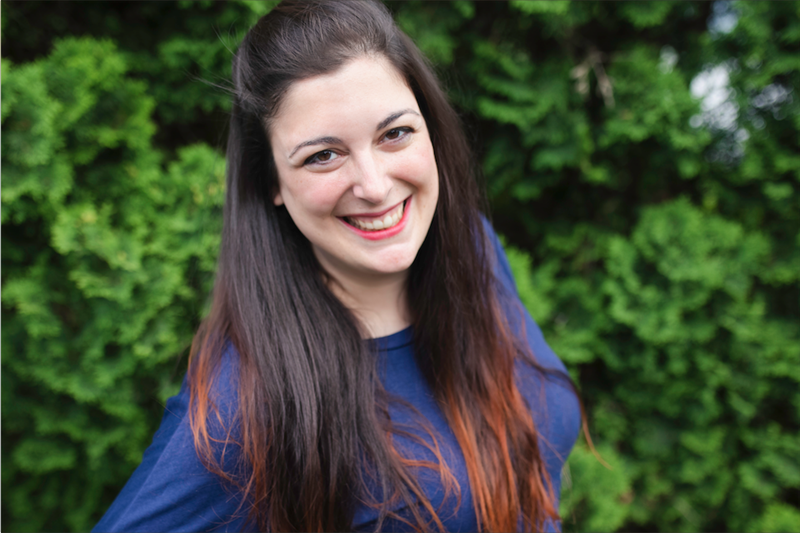
WFF RACHAEL FRIED (CLASS 4)
Wexner Value: OPTIMISM
Every human has their own internal monsters – they’re demons we battle in our heads and skeletons we keep tucked away in our closets. These monsters are generally regarded as something to be ashamed of – they’re the parts of us that we try to hide away from the world. But what if we were to take those monsters and use their strength to better the world and to better ourselves. To take the parts we are taught should be ugly, and turn them into something beautiful. What if we were to build optimism out of the monsters themselves?
I’ve spent a lot of alone time with just my monsters and me, quarantining with them for weeks at a time. If there’s anything I’ve learned from these complicated times, it’s that 1) everyone has something, a monster, that they’re struggling to live with in one way or another and 2) the strength and resilience inside each human to get through those struggles is quite remarkable. I believe that seeing these monsters in a new light – learning to confront, own, and eventually love them is the best way to pave the road to a brighter future.
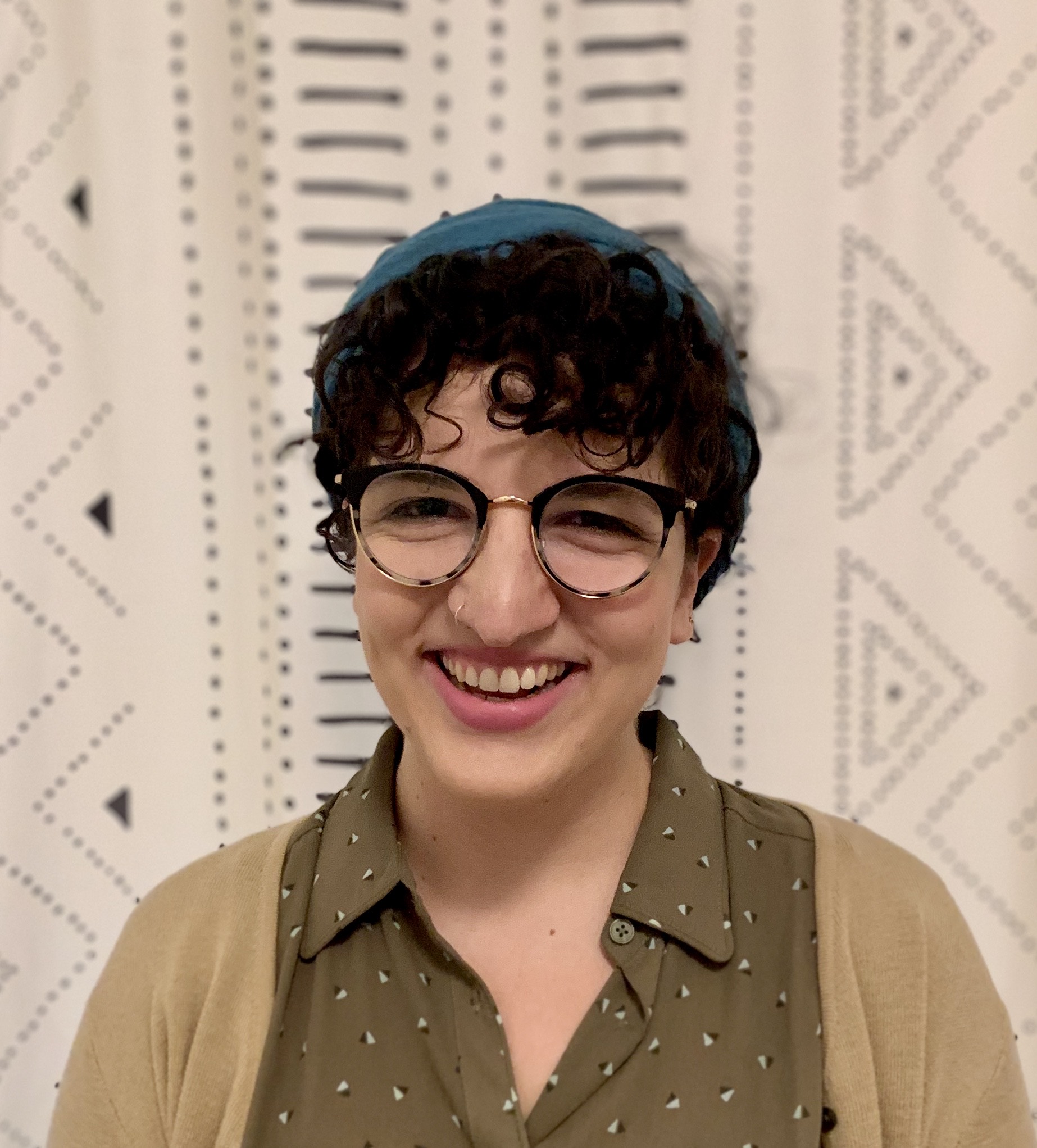
WGF/DS ALUM RABBI MAYA ZINKOW (CLASS 30)
Wexner Value: CURIOSITY
Sakranut is the foundation, the yesod or keren (קרן), of building relationships of meaning. Our tradition is rich with voices that inspire us to ask questions, seek answers, dig deeper. But for one of the first instances of curiosity, we need not look further than the book of Breishit. When Chava, Mother of All, reaches for fruit from the Tree of Knowledge of Good and Evil, she acts out of curiosity. Though she is punished, her action speaks to a powerful truth of human nature: that we are curious beings. When we approach the world around us, people, and ideas with curiosity, we take a risk. But we also plant the seeds for relationships rooted in vulnerability, trust, and a desire to truly see one another.
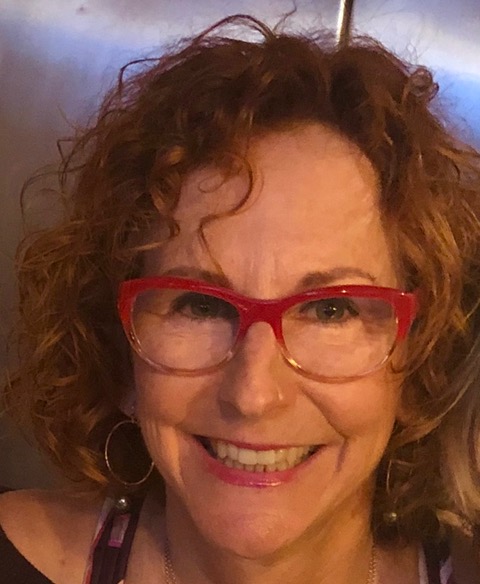
WHP Alum Nancy Pechner (San Francisco 2)
Wexner Value: DIVERSITY
“‘B’tzelem elohim’ means that we are all created in the image of G-d with infinite value and infinite worth.” (Rabbi Yitz Greenberg, z”l, WHF Opening Plenary, June 1996, Aspen, CO).
This moment was the turning point in my understanding and acceptance of my relationship with the Divine. Each person on this planet is unique, and a valuable piece to the puzzle of global humanity. My multicolored trees represent the value of geevan, diversity, in that although we all come packaged differently, we are all entitled to be celebrated with civility, loving-kindness, justice and truth. The grape vines depict how we survive through our shared root systems of interdependence and connectedness. We need one another and must treat each other with love and respect to collectively bear witness to a more peaceful world.
As community lay leaders, we all need to demonstrate these values and be role models, l’dor v’dor, for future generations to strengthen kol yisraeil.
To quote musician Dan Nichols, “Be strong, let us strengthen one another. Be strong, let us celebrate our lives. Be strong, be strong, chazak chazak, v’nit chazeik.”
